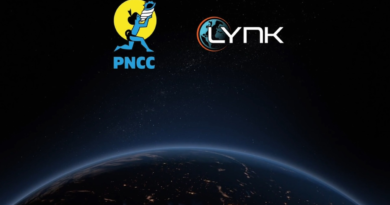Google Cloud launches AlloyDB Omni, a downloadable version of its PostgreSQL-compatible database
AlloyDB for PostgreSQL is Google Cloud’s fully managed cloud-based database service. And typically, that’s where the story ends with these born-in-the-cloud services. But Google Cloud is taking a somewhat unusual approach with AlloyDB. Today, the company is launching AlloyDB Omni, a downloadable edition of AlloyDB that its users can install on premises, at the edge or on their laptops. There will be a free developer edition, while commercial users will have to pay for their licenses.
Google argues that AlloyDB Omni, which the company will package as a downloadable container, is twice as fast for transactional workloads and can deliver 100 times faster analytical queries than the standard open source version of PostgreSQL. Google also notes that AlloyDB Omni can scale to a much larger number of CPUs.
“When we announced AlloyDB, we talked a lot about the fact that many customers had approached us and talked about their interest in getting off legacy databases and moving to open APIs, whether those are customers coming from Oracle, [Microsoft’s] SQL Server, [IBM’s] Db2, Google’s Andi Gutmans explained. “And part of the mission of AlloyDB was really to help customers modernize their existing legacy databases, onto open APIs, while the focus of our AlloyDB managed service was to bridge some of those gaps between the higher-end legacy database environments that customers are running on premises and what they could get from open source.”
Gutmans noted that Google was getting a lot of interest from customers who wanted to move to AlloyDB, but quite a few also noted that it would take them quite a bit of time to move all of their workloads to the cloud — and their strategies typically revolved around a multicloud approach. And these customers, Gutmans said, want to move away from their legacy databases faster than they can move to the cloud. Unsurprisingly, the result of this is AlloyDB Omni, which will now allow Google’s customers to modernize their workloads.
“While the cloud is often the final destination, many organizations have workloads that can’t be immediately moved, creating the need for a downloadable, cross-platform database to run enterprise applications,” said Carl Olofson, research vice president, Data Management Software, IDC. “AlloyDB Omni is a great move for Google Cloud because it meets customers where they are rather than requiring them to change platforms. A PostgreSQL-compatible database with accelerated performance, an integrated analytics engine and ML-driven management fills a critical need in the database market, and AlloyDB Omni is a compelling option for organizations looking for a proven database that’s supported by a major vendor and offers cloud and non-cloud deployment options.”
Given that AlloyDB is essentially a drop-in replacement for PostgreSQL, businesses can use all of the PostgreSQL-compatible tools they may already use today to back up and replicate their databases, for example, and the service is obviously compatible with all PostgreSQL-enabled applications they may already have.
Google says that it will offer full enterprise support, including 24/7 technical support, once AlloyDB Omni becomes generally available.
Asked about whether Google Cloud would contribute some of this work back to the open source PostgreSQL project, Gutmans noted that the company plans to be an active contributor to the project, but that it will keep some of its work private as well. “There are certain areas where we believe we have some secret sauce and differentiation that’s important for us to keep,” he said. “I’ll give you an example: Our vectorized engine that helps accelerate analytics queries, that is based on many years of innovation inside of Google and work that we already did before AlloyDB. That’s probably something that we were more likely to kind of keep in the AlloyDB product. But there’s definitely areas where we think we can become more significant contributors to Postgres and really help to make sure that we both give back and really make the Postgres community better.”




